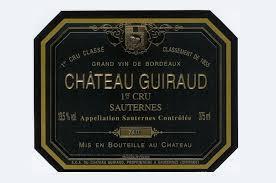Reviews of Château Guiraud Sauternes 2001, Clear Creek Distillery Slivovitz Blue Plum Brandy and Mosby Kosher Plum Brandy Slivovitz .
By Joshua E. London and Lou Marmon
Washington Jewish Week June 11, 2015

Tokaji, pronounced toe-koy, is produced exclusively in the Tokaji-Hegvalja region of Hungary primarily from Furmint grapes (there are six grape varieties officially approved for Tokaji wine production, but Furmint accounts for about 60 percent of all plantings, with Hárslevel? taking another 30 percent of the vineyard allocation; the other four varieties make up the remainder).
Wine from Furmint can be produced in a variety of styles ranging from bone dry to extremely sweet, with its most famous sweet expression being the “Aszú” style of Tokaji [“aszú” is Hungarian for “dried”, but the term denotes the type of wine made with botrytised grapes.]. Furmint begins with a thick skin which thins to near translucency as it matures, during which the grape’s internal water content evaporates considerably, concentrating the sugars and flavors. If allowed to develop botrytis, or “Noble Rot,” the grapes will be become partially raisined or dried out (“aszú”), and can impart a racy, honey-like flavor to the typically fine and seriously concentrated sweet wine.
For centuries Tokaji was highly prized, but during Communist rule the quality slipped. With the end of the Cold War, new investment was encouraged and many of the finest Tokaji properties were sold to foreign investors, like The Royal Tokaji Company.
According to a recent story in The Forward by Nathan Guttman, Royal Tokaji’s headquarters in the village of Mád are in the former home of the Zimmerman family, prominent local winemakers before WWII. The house and lands were confiscated, obviously, and most of the family perished in the Shoah, but one daughter, Susy Oster, survived and made it to the US.
Recently members of her family came upon a picture of the Royal Tokaji winery and recognized it as their matriarch’s home. While Ms. Oster is not interested in revenge nor compensation, her family is seeking recognition of the role of her family in Tokaji winemaking and the vineyards. They simply want their family’s memory reinstated into the history.
Unfortunately the interaction between the family and Royal Tokaji has become acrimonious with accusations of rude behavior and threats to involve human rights groups. For its part, Royal Tokaji states that they “completely abhor the family’s awful and horrendous experience during the Holocaust,” but note that their requests for the family to provide ownership documentation have been denied. The family does not seek compensation, but is requesting that their roles be formally acknowledged by the company.
It seems likely that some accommodation will be made since the family is not seeking any financial compensation. Sadly, there has not been a kosher Tokaji imported to the United States for some time now. So in consideration of all this, we drink a toast with one of our favorite botrytis dessert wines to honor the role of the Zimmermans and other Jewish families in the wine business. The kosher version of Château Guiraud Sauternes 2001 ($150) is creamy, honeyed and full-bodied with butterscotch, apples and vanilla aromas that mingle within lush layers of apricots, peaches, baking spices and orange citrus. The intense sweetness, concentrated flavors and ideal balance last throughout the extended finish, easily making this one of the world’s finest kosher dessert wines.
Spirits-wise, we are not aware of any current, worthwhile, kosher Hungarian hooch so we thought we’d settle in with a bracing shot of Slivovitz. For anyone not familiar with the old traditional Jewish tipple, Slivovitz is a Central and Eastern European distilled beverage made from Damson plums and is often called “plum brandy.” Slivovitz is produced in many places, like Serbia, Slovenia, Croatia, Bosnia, Romania, Czech Republic, Slovakia, Poland, Bulgaria, and, of course, Hungary. When produced in Hungary it is part of the Pálinka or fruit-based spirits category of distilled drinks. Here are two non-rot-gut, in fact lovely and refined, American made options we rather enjoy:
Clear Creek Distillery Slivovitz Blue Plum Brandy (certified kosher for Passover by Oregon Kosher; 40 percent abv; $30; 375ml bottle): made from Oregon grown Italian blue plums, this smooth, slightly off-dry, complex brandy offers notes of fresh, sweet, ripe plums and a little distinct pepperiness, with an absorbing, warm finish.
Mosby Kosher Plum Brandy Slivovitz (certified kosher for Passover by Rabbi Yonah Bookstein of Los Angeles; 43.3 percent abv; $55): Made in California from locally sourced plums, this potent, deeply flavorful Slivovitz seems closer in kinship to the more traditional Eastern European brands, but oh, so much better! With heady aromas of pure plum, and more subtle notes of vanilla pudding, marzipan, overripe melon, and a little pepperiness to tickle the palate, this Slivovitz is fruity, floral, medium-to-full bodied and surprisingly complex. The finish is a tad hot, but satisfyingly so. L’Chaim!
